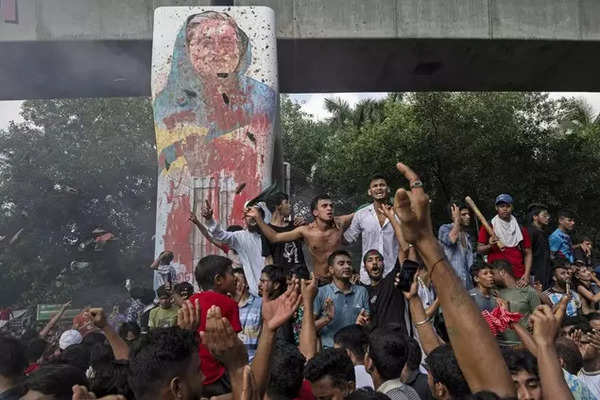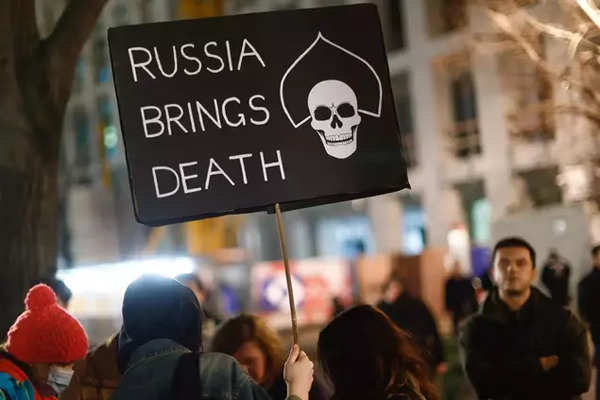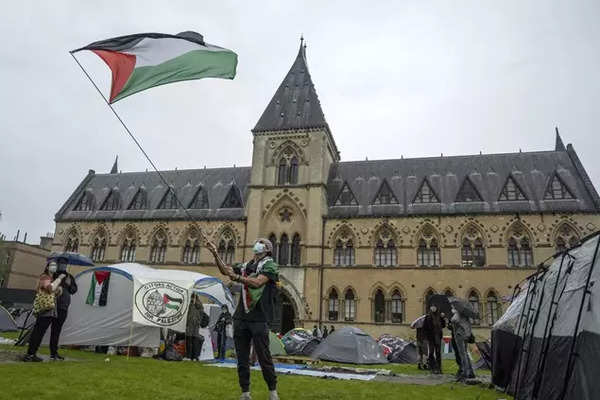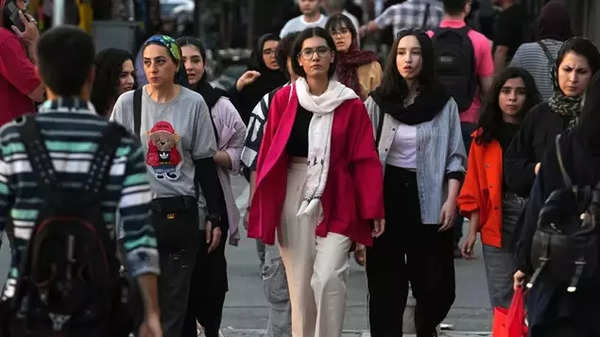Throughout history, demonstrations and public protests have been instrumental in driving societal transformation. Whether fighting colonial rule, standing against autocratic leadership, or challenging governmental decisions, public demonstrations serve as a crucial platform for citizens to make their voices heard.
Protests provide a way for citizens to assert that ordinary people hold power. Protests aim to make our world, often torn by wars and conflicts, a better place to live and often emerge as direct responses to oppression and injustice.
The dawn of the 21st century brought optimistic predictions about the expansion of democratic values, citizens’ rights being secured, and discrimination against women and other marginalized groups declining.
However, despite some advancements in reducing discrimination against marginalised communities in certain regions, significant challenges persist. Discrimination continues to affect women, tribal populations, LGBT communities, minority groups and others across various regions.
From Russia to Iran, the United States, Afghanistan, and Palestine, 2024 witnessed numerous social movements by people striving for justice and rights.
Here are some of the major movements that took place across the world this year:
Bangladesh’s ‘second independence’
In 2024, Bangladesh saw massive protests that led to the resignation of Prime Minister Sheikh Hasina. The unrest was driven by anger over a quota system reserving 56 per cent of government jobs for certain groups, including 30 per cent for descendants of freedom fighters from the 1971 War of Independence. Many believed the system prevented unemployed youth from accessing civil service jobs, with allegations that it disproportionately benefited supporters of Hasina’s ruling Awami League.

Protesters celebrate beside a defaced portrait of Prime Minister Sheikh Hasina after news of her resignation, in Dhaka, Bangladesh.
In 2018, student-led protests had forced Hasina to abolish the quota system. However, in June 2024, the High Court ruled this abolition illegal, sparking fresh protests. At the same time, pension reforms at public universities, which included salary deductions, led to widespread faculty and student walkouts. Tensions increased when Hasina referred to protesting students as “rajakaar,” a term associated with pro-Pakistan collaborators during Bangladesh’s War of Independence, further angering the public.
The government’s response included violent crackdowns. The Awami League’s student wing and paramilitary forces used tear gas, live bullets, and mass arrests against protesters. The death of university student Abu Sayeed, captured on video, became a symbol of the movement, sparking a nationwide noncooperation movement. Millions marched to Dhaka despite curfews. In the end, Hasina resigned and fled the country, leaving Bangladesh under interim governance and deeply polarized.
Hasina’s government was described by political scientists as an example of “competitive authoritarianism,” where elections occurred but the ruling party used state resources to weaken the opposition and create an uneven political landscape.
While some have hailed Sheikh Hasina’s ouster as Bangladesh’s “second independence,” the country’s future remains uncertain. Reports of attacks on minorities under the interim government have raised questions about the nation’s trajectory. Will Bangladesh evolve into a more inclusive and liberal democracy, or will it move toward greater Islamization, mirroring Pakistan’s path? Only the people of Bangladesh can decide.
‘Russia without Putin’
In Russia, large crowds gathered on March 1, 2024, to mourn opposition leader Alexei Navalny. Navalny, a prominent critic of President Vladimir Putin, died in prison on February 16, 2024, at the age of 47. His supporters accused the authorities of murder.
During the funeral, chants like “Russia will be free,” “No to war,” “Russia without Putin,” “We won’t forgive,” and “Putin is a murderer” were heard. Navalny was known for his sharp criticism of Putin and his policies.

People lay flowers and light candles for Alexei Navalny, critic of Russian President Vladimir Putin, near the Russian Embassy on February 16, 2024 in Berlin, Germany.
Vladimir Putin has been the dominant figure in Russian politics since 2000. He served two terms as president before becoming prime minister for four years, then returned to the presidency in 2012. He won reelection in 2018 and again in 2024.
Putin has strengthened his control over state institutions and the media. This control has been reinforced by a focus on nationalism and opposition to the West. Since his return to the presidency, Russian authorities have further restricted media freedom, silencing opposition voices.
Afghan women sing to protest
In August 2024, the Taliban introduced new “vice and virtue” laws banning women from singing in public or allowing their voices to be heard outside their homes. The laws also require women to cover their faces and have a male guardian with them while traveling or using public transportation. Additionally, women are prohibited from befriending those considered “infidels.”
The laws state, “Whenever an adult woman leaves her home out of necessity, she is obliged to conceal her voice, face, and body.” Men are also required to cover their bodies from their navels to their knees when outside their homes.
Women are now banned from looking directly at men they are not related to, and taxi drivers face punishment if they transport unaccompanied women. Women and girls who violate these laws can be detained and punished as deemed appropriate by Taliban officials.
This is one of the few laws the Taliban have officially published since taking power three years ago, signaling their intention to restructure Afghan society and severely restrict women’s rights. The situation for Afghan women was already difficult but has worsened significantly under Taliban rule.
A report by Amnesty International in March 2023, titled “Women, Protest and Power – Confronting the Taliban,” highlighted that before the Taliban takeover in August 2021, there were about two million girls in secondary schools, and many women were pursuing higher education and working in various fields, including medicine, politics, and business. The report noted, “the return of the Taliban in Afghanistan on August 15, 2021, took away these limited yet important achievements from women and girls.”
But Afghan women have not given up, they have raised their voices in whatever capacity they can to show dissent against the Taliban’s illogical and anti-human laws. Following the Taliban’s takeover, women began peaceful protests demanding social and political justice and their rights. In the Amnesty report, Wahida Amiri from Afghanistan’s Women Spontaneous Movement said, “We refuse to accept being jailed in our homes, we refuse to be discriminated against, we refuse to be repressed.”
In response to the new “vice and virtue” laws, Afghan women turned to the internet to protest. As a report by NPR said, they committed what would be a crime in their homeland. They sang. They sang and posted videos of themselves singing resistance songs. Fatima Etihadi, who fled Afghanistan a year after the Taliban’s takeover, shared a video on social media where she and her friends sang, “The flower will unfurl, revealing a spring of freedom. I sing the anthem of freedom, again, again, freedom.”
For now, Afghan women remain under a regime that views them as needing to be concealed. However, as the NPR report said, Afghan women are raising their voices to anyone who’ll hear them.
Pro-Palestine protests in Universities across the world
The Hamas attack on Israel on October 7, 2023, and the subsequent war led to protests worldwide. Many of these demonstrations called for an end to the conflict, which caused the deaths of at least 1,200 Israelis and 44,000 Palestinians.
In 2024, US college campuses became central to the debate over pro-Palestinian demonstrations. Over 3,100 people were arrested or detained during protests, most of which were peaceful. The protests often included encampments, starting in mid-April when students at Columbia University pitched tents on campus while the president of the New York City university testified before Congress about antisemitism.
The police moved in a day later and detained the protesters, sparking a wave of action at other colleges across the US.

A student activist waves a Palestinian flag at a pro-Palestine encampment at Oxford University on May 6, 2024 in Oxford, England.
Protesters demanded that universities divest financially from Israel. This included ending investments in Israeli companies or those doing business with Israel and cutting academic ties with Israeli institutions. Student activists argued that such businesses and universities were complicit in the ongoing conflict in Gaza.
These protests spread beyond the US, with students in the UK, France, Australia, Mexico, and other countries organizing similar demonstrations and creating “solidarity encampments.”
Iranian women continue to resist
Two years after the “Woman, Life, Freedom” protests shook Iran, following Mahsa Amini’s death in 2022, women in Iran continue to resist. A young woman at Tehran’s Islamic Azad University stripped to her underwear after being confronted by security for not wearing a hijab. Moreover, it’s becoming more common to see a woman passing by without a mandatory headscarf, or hijab, a report by news agency AP said in September.

Iranian women, some without wearing their mandatory Islamic headscarves, walk in downtown Tehran, Iran, Saturday, September 9, 2023.
The report further said, “Today, passersby on the streets of Tehran, whether its tony northern suburbs for the wealthy or the working-class neighborhoods of the capital’s southern reaches, now routinely see women without the hijab. It particularly starts at dusk, though even during the daylight on weekends women can be seen with their hair uncovered at major parks.”

An Iranian woman, without wearing her mandatory Islamic headscarf, walks in northern Tehran, Iran, Friday, November 15, 2024.
Additionally, the Iranian government has paused implementing a stricter law on the hijab, which many believe could reignite protests similar to those following Amini’s death. Amini died on September 16, 2022, after being arrested by the morality police for allegedly not wearing her hijab properly. Since then, more women have defied the hijab law despite the risks of arrest and harassment.
Protest against anti-LGBTQ laws
In August 2024, protesters gathered outside the Bulgarian parliament to oppose a controversial legal amendment banning discussions of LGBTQ+ topics and “non-traditional sexual choices” in schools. The protest followed the failure of the country’s President, Rumen Radev, to veto the bill.
Feminist, LGBTQ+, and other rights groups organized the demonstration, demanding the repeal of the amendment, which its supporters referred to as a ban on “LGBTQ+ propaganda in schools.”

A protester with a rainbow flag during a demonstration against changes to Bulgaria’s education law outside the presidential palace in Sofia, Bulgaria, on Thursday, August 15, 2024.
The amendment was proposed by the pro-Russian Vazrazhdane party and unexpectedly supported by some pro-European Union parties.
In the 240-seat Bulgarian parliament, 159 lawmakers voted in favor of the change.
The amendment prohibits “the promotion, popularization, and support of ideas and opinions related to non-traditional sexual orientation or sexual identification other than biological” in schools.
Day of ‘No’ silence
The Day of Silence, observed annually in April, is a student-led protest aimed at highlighting the silencing and marginalization of LGBTQ+ voices in US schools.
Participants traditionally remain silent throughout the day to symbolize the struggles faced by LGBTQ+ students due to discrimination and harassment.
This event traces its origins to April 1996 when Maria Pulzetti, a student at the University of Virginia, organized a silent protest for LGBTQ rights. Inspired by a class on the Civil Rights Movement, Pulzetti sought to use non-violent means to spotlight the unheard voices within her college community. Students who joined the protest stayed silent throughout the school day, distributing cards that explained their silence was a stand against homophobia and discrimination.
In 2024, however, the Day of Silence took on a new form, evolving into the “Day of (No) Silence.” Rather than observing silence, students and activists chose to use their voices to highlight the issues facing LGBTQ+ communities more assertively.
“Being silent itself has never been the goal, that’s always been a tactic,” CNN quoted Gilliam as saying.










